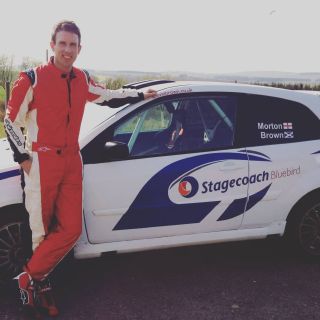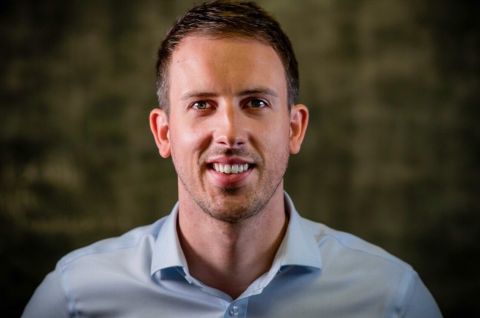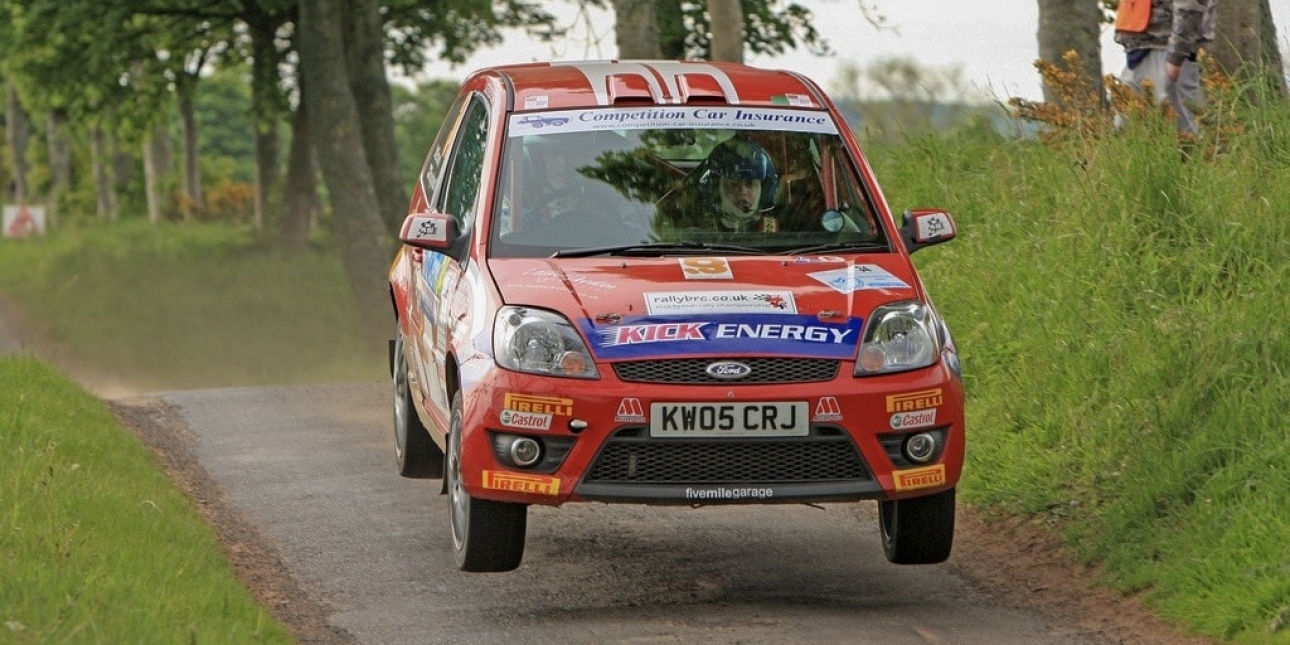How rally driving has accelerated my PR skills and career
Understanding the human brain through the prism of competitive sports can help PRs handle pressure, assess risk and communicate more effectively in the world of comms too
All comms professionals know the gut-wrenching feeling when the absolute worst thing, the most calamitous event you can think of, has befallen your client. It happened once in my previous role, a job which involved providing emergency responses for oil and gas companies. Yet, while chaos was unfolding around me, I surprised myself: I didn’t panic, but offered counsel, support and cost solutions instead. I responded rather than reacted.
Looking back, I credit this calmness to my time as a semi-pro rally driver. Few people know this, but when a rally car gets a puncture, there’s no swarm of pit-crew members changing the tyres: drivers/co-drivers do this themselves. We just grab the rattle-gun, jack the car up, change the wheel and off-we-go. In the every-second-counts environment of rally driving, this needs to be done in less than two minutes too. You could practice this for years (and we did!). But if you fail to stay calm, you’d choke and end up losing the race.
Little did I realise back then, but the enhanced concentration (or ‘flow state’, as neuroscientists call it) of rally driving not only helped me manage work-related anxiety in the world of PR, but also block out other stimulus: the pressure of meeting deadlines, or negative online conversations.
My years as a rally driver saw me win the 1600cc Scottish Championships, race in the British Rally Championship, scud across frozen lakes in Norway and hurtle through sand dunes in the Middle East. However, I believe any competitive sport, whether it’s football or figure skating, can equip people with the transferable skills necessary for a corporate comms career.
One of the most useful is risk assessment.
Everybody thinks rally drivers are slightly mad, taking crazy risks such as careening around hairpin bends at 100mph. However, it’s knowing when to slow down that’s important. Today, I believe it’s a skill that helps me when I’m confronted with a decision to play it safe or go even bolder, such as the time when I pushed back on a client who told me there was “too much communication” between them and their staff during M&A activity.
Soft skills and teamwork
Communication is obviously paramount in public relations. Again, I feel much of my soft skills that I have are because of rally driving. Sitting alongside me in the passenger seat during every race is a co-driver: a crucial role spanning navigation, map interpretation and warning me about obstacles ahead. We need complete trust in each other, something I hope I’ve developed in my relationships with right-hand people since.
 The teamwork doesn’t end there: in rally driving, there’s an entire backroom of engineers and mechanics. Some of these talk in a technical way: all ‘rotation of axles’ and ‘linear tyre force regions’. Occasionally, this would be beyond my ken: I’d need to find ways of communicating that the entire team understands to establish a shared language. I was reminded of this recently when an internal presentation drafted by a colleague extolled the benefits of the company but didn’t talk to the audience, especially where their jobs fitted with this wider picture.
The teamwork doesn’t end there: in rally driving, there’s an entire backroom of engineers and mechanics. Some of these talk in a technical way: all ‘rotation of axles’ and ‘linear tyre force regions’. Occasionally, this would be beyond my ken: I’d need to find ways of communicating that the entire team understands to establish a shared language. I was reminded of this recently when an internal presentation drafted by a colleague extolled the benefits of the company but didn’t talk to the audience, especially where their jobs fitted with this wider picture.
Rally driving also made me realise that the high performance of any team is down to paying attention to the small details, the 1% marginal gains. It’s about having a critical lens; being able to identify any small areas for improvement. In my previous comms job at VisitAberdeenshire, we were among the first to incorporate the ‘swipe up to view the full travel itinerary’ [function] on Instagram, highlighting key attractions that travel influencers were posting about, allowing the audience to easily recreate the experiences themselves. It ended up being so successful, VisitBritain and VisitScotland also adopted the approach.
When things go wrong
Playing competitive sports also teaches you to think outside the box. Things can – and do – go wrong. Being resourceful helps, such as the time I took my shoelaces to help deal with a throttle cable snap when our car broke down.
As sportspeople, we often need to present poor results in positive ways. There’d be times when we crashed during a race or we had mechanical failure, but had to deal with media and sponsors afterwards, all wanting to know why we’d dropped the ball. This obviously helps in PR, especially when communicating unfavourable news to stakeholders.
Above all, it was the sessions I did with a sport psychologist that still inspires me, helping foster my lifelong love of neuroscience. It taught me our brains can’t process negative language. For example, if I write, “Don’t think about white polar bears”, you’re probably imagining them sitting on ice floes. In the car, many mistakes would come from a co-driver saying something like “don’t cut this corner”, but if they would have said, “keep to your own side of the road there”, I would have understood it much more clearly. Today, I avoid negative language as much as possible.
Working with a sports psychologist also taught me what you can and can’t control in life: you can’t stage-manage what your competitors are doing, so worrying about their brilliance is wasted energy. Instead, direct your energy towards things you can do: uncovering the hidden needs of your consumers, being prepared for everything, and making the best product/service in the world. Whether you’re driving a rally car or a leading a PR team, it’s a sure-fire way of staying in the fast-lane.
 Stevie Brown is head of communications at ICAS, the Institute of Chartered Accountants of Scotland.
Stevie Brown is head of communications at ICAS, the Institute of Chartered Accountants of Scotland.
.jpg&w=728&h=90&maxW=&maxH=&zc=1)
